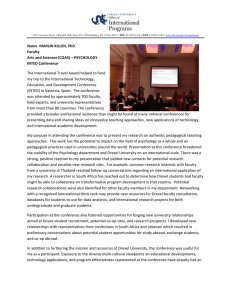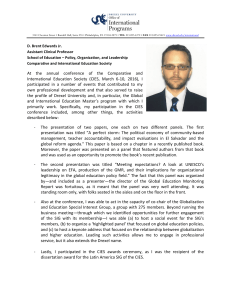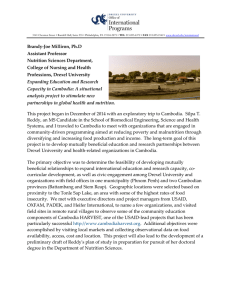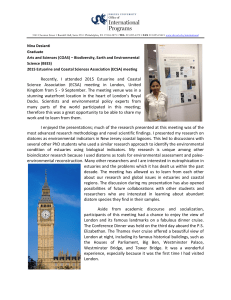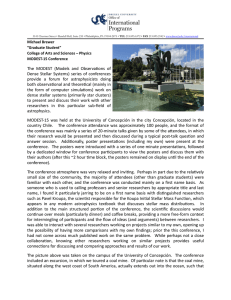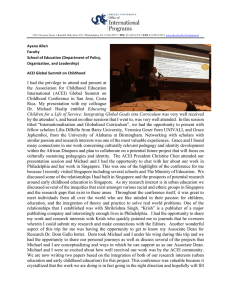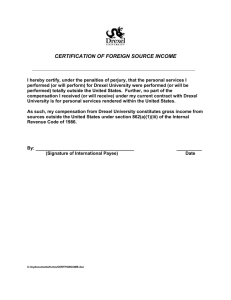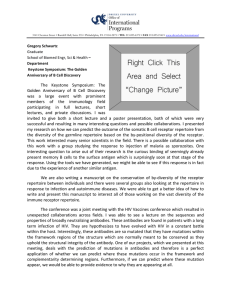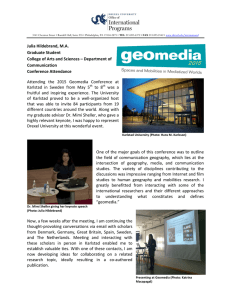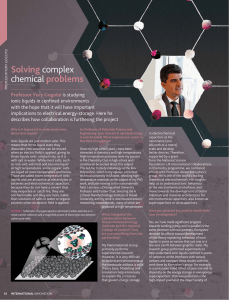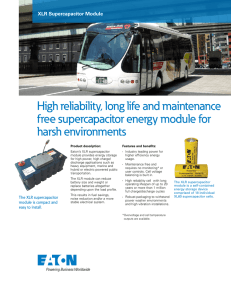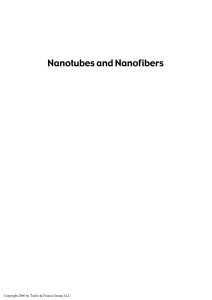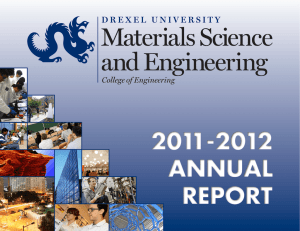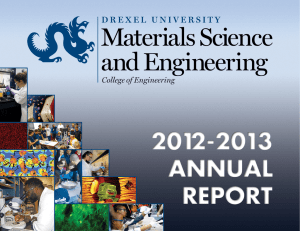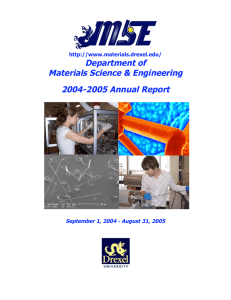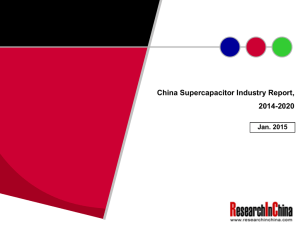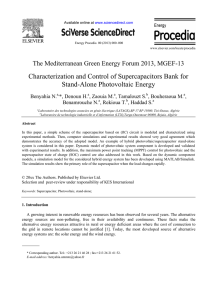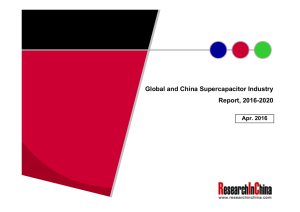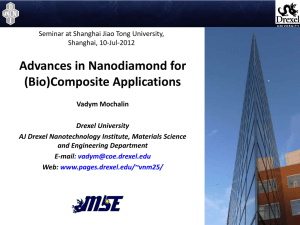Document 10983228
advertisement
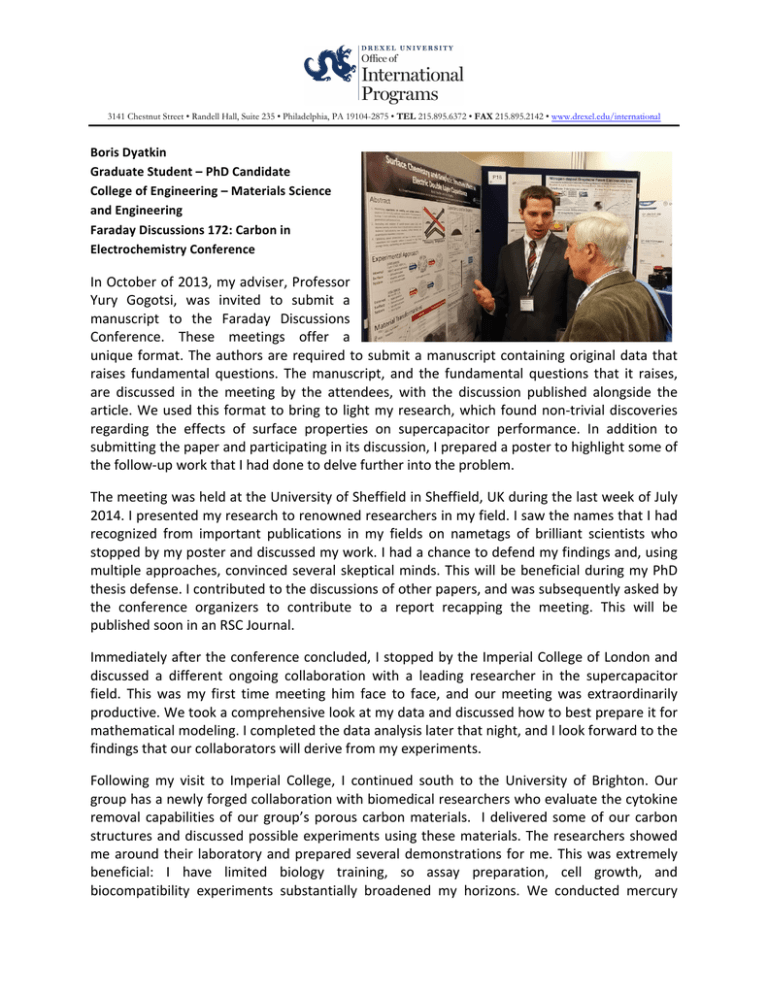
3141 Chestnut Street • Randell Hall, Suite 235 • Philadelphia, PA 19104-2875 • TEL 215.895.6372 • FAX 215.895.2142 • www.drexel.edu/international Boris Dyatkin Graduate Student – PhD Candidate College of Engineering – Materials Science and Engineering Faraday Discussions 172: Carbon in Electrochemistry Conference In October of 2013, my adviser, Professor Yury Gogotsi, was invited to submit a manuscript to the Faraday Discussions Conference. These meetings offer a unique format. The authors are required to submit a manuscript containing original data that raises fundamental questions. The manuscript, and the fundamental questions that it raises, are discussed in the meeting by the attendees, with the discussion published alongside the article. We used this format to bring to light my research, which found non-­‐trivial discoveries regarding the effects of surface properties on supercapacitor performance. In addition to submitting the paper and participating in its discussion, I prepared a poster to highlight some of the follow-­‐up work that I had done to delve further into the problem. The meeting was held at the University of Sheffield in Sheffield, UK during the last week of July 2014. I presented my research to renowned researchers in my field. I saw the names that I had recognized from important publications in my fields on nametags of brilliant scientists who stopped by my poster and discussed my work. I had a chance to defend my findings and, using multiple approaches, convinced several skeptical minds. This will be beneficial during my PhD thesis defense. I contributed to the discussions of other papers, and was subsequently asked by the conference organizers to contribute to a report recapping the meeting. This will be published soon in an RSC Journal. Immediately after the conference concluded, I stopped by the Imperial College of London and discussed a different ongoing collaboration with a leading researcher in the supercapacitor field. This was my first time meeting him face to face, and our meeting was extraordinarily productive. We took a comprehensive look at my data and discussed how to best prepare it for mathematical modeling. I completed the data analysis later that night, and I look forward to the findings that our collaborators will derive from my experiments. Following my visit to Imperial College, I continued south to the University of Brighton. Our group has a newly forged collaboration with biomedical researchers who evaluate the cytokine removal capabilities of our group’s porous carbon materials. I delivered some of our carbon structures and discussed possible experiments using these materials. The researchers showed me around their laboratory and prepared several demonstrations for me. This was extremely beneficial: I have limited biology training, so assay preparation, cell growth, and biocompatibility experiments substantially broadened my horizons. We conducted mercury 3141 Chestnut Street • Randell Hall, Suite 235 • Philadelphia, PA 19104-2875 • TEL 215.895.6372 • FAX 215.895.2142 • www.drexel.edu/international intrusion experiments, which calculated a previously undetected macropore presence in one of our materials. These experiences were extraordinarily beneficial to my PhD study. I learned novel techniques and met with brilliant researchers. I will build on this work to maximize chances of tangible deliverables, such as publications, to follow. I am extraordinarily grateful to Drexel’s Office of International Programs and Professor Yury Gogotsi for this opportunity.

